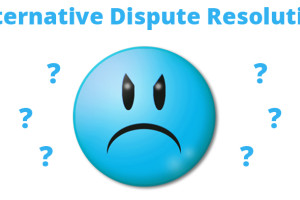What you should know about the alternative dispute resolution

Next year, all retailers in the European Union need to prominently state that customers can exercise new dispute resolution rights, provide a link to the EU website explaining these rights, and state whether the store opts in or opts out of the EU scheme. Here’s what you should know about this alternative dispute resolution.
The new EU legislation, which takes effect from 9 January 2016, affects the provision of online customer service. It changes the way issues and disputes can be resolved out of court. This legislation is the result of the European Union deciding in 2013 to extend the use of alternative dispute resolution, in order to boost consumer confidence and internal market performance.
What are ADR and ODR?
Now, if a consumer has a problem with a retailer regarding a product or service they bought, they can settle it through an alternative dispute resolution (ADR) or online dispute resolution (ODR) procedure. This alternative way of resolving disputes is, in general, easier, faster and cheaper than resolving those disputes before a court. These procedures can have different forms and different names, such as arbitration, mediation, ombudsmen and complaints boards.
Online Dispute Resolution
By 9 July of this year, all EU member states had to translate the directive into rights and obligations for traders and consumers. The national laws will come into force at the beginning of next year. And from 9 January 2016, all businesses selling goods or services online must link to the ODR platform of the European Commission. This platform, which is designed to help consumers who have bought something online and have a problem with that online purchase, allows customers to submit their dispute and conduct the alternative dispute resolution procedure online in any of the 23 official EU languages. This platform will be operational from the beginning of 2016.
Duty to inform consumers
British ecommerce association IMRG compiled an overview which contains all the important details of the new solution. As said, all retailers in the EU must state on their websites that customers can exercise new dispute resolution rights and they should accompany this text with a link to the EU website that explains these rights. And if a retailer opts in, he must put in place arrangements to facilitate alternative online dispute resolution.
ADR bodies
According to IMRG, some member states already have full ADR coverage, while others – such as France, Germany and Ireland – have sector-specific bodies but no central national body. And there are EU countries that have no history of ADR, except for some judicial mediation or arbitration, and therefore need to establish a new national body.
Mandatory or voluntary
Traders are able to specify which ADR provider(s) they want to use, but an ADR clause can’t be binding for consumers. According to IMRG, ADR can be either mandatory or voluntary, but in countries where it’s mandatory for retailers, the consumer will likely be able to contact the national body to resolve disputes.
Important to know is that consumers must first contact the retailer to try to resolve the problem before they raise a complaint with an ADR provider. Also, ADR procedures may cost consumers money, but they should be as inexpensive as possible.

Comments